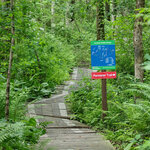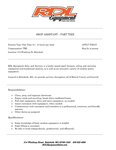Rehoboth, Say No to Stabilization For School Funding
As you may or may not know, at the May 13th Town Meeting, the Dighton-Rehoboth School Committee motioned to amend Article 3 of the Town Warrant to fund the full DRRSD budget Assessment of $19,529,656 using $558,797 out of Rehoboth’s stabilization fund, which currently holds a balance in excess of $1.3M.
The Massachusetts Department of Revenue defines a stabilization fund as follows:
A fund designed to accumulate amounts for capital and other future spending purposes, although it may be appropriated for any lawful purpose (MGL Ch. 40 §5B). A two-thirds vote of town meeting is required to establish, amend the purpose of, or appropriate money into or from the stabilization fund.
A stabilization fund is, by nature, a non-recurring revenue source, which MA DOR defines as follows (with a guideline):
A one-time source of money available to a city or town. By its nature, a nonrecurring revenue source cannot be relied upon in future years. Therefore, such funds should not be used for operating or other expenses that continue from year-to-year.
Stabilization is not like Free Cash or the school departments Excess & Deficiency (E&D) funds. Free Cash and E&D are basically certified funds that unspent revenue at the close of a fiscal year gets deposited into. While they cannot be relied upon for funding operating budgets, with sound financial planning, money should be going into Free Cash and E&D every year. Furthermore, E&D is typically used by the school department to offset budget costs each year because it is capped at 5% of the total operating budget of the district. If it ever exceeds that amount, the overage must be refunded to the member towns. Using a percentage of E&D to fund the school operating budget is perfectly acceptable and should not be likened to the town’s free cash, and certainly not stabilization.
The problem with using non-recurring revenue sources to fund operating expenses, such as the town budget or the DRRSD budget assessment, is that once you use those funds, the operating budget the following year will be based upon the non-recurring funds you used. You will have to use the same amount again. If the operating budget grows faster than town revenue, you will actually need to use more of the non-recurring source.
Using $560K out of stabilization will not be a one-time thing. The same amount of stabilization, if not more, will have to be used again next year. Best case scenario, after FY21, we will have used $1.12M of the $1.3M stabilization fund. There will not be enough to fund FY22 and there will have to be a Proposition 2 ½ override to fund the town operating budgets once again because the funding source has been depleted.
If a looming override isn’t undesirable enough, there are other disastrous consequences from this irresponsible course of action. The stabilization fund is a key component in determining the town’s bond rating, affecting the amount of interest we would need to pay if/when we need to borrow money. The school district’s bond rating is also negatively affected as it is based on the bond rating of the member towns.
Whether you are for the full funding of the DRRSD budget request or not is irrelevant when it comes to the issue of using stabilization funds to pay for it. If we, the residents of Rehoboth, allow this plan to move forward, a future override will be required and we will not have a stabilization fund on top of it. It is a financial disaster scenario for the town. This is why I urge you to be present May 28th and let your vote be counted. Say NO to the use of stabilization to fund the DRRSD budget assessment.


















Comments
No comments on this item Please log in to comment by clicking here